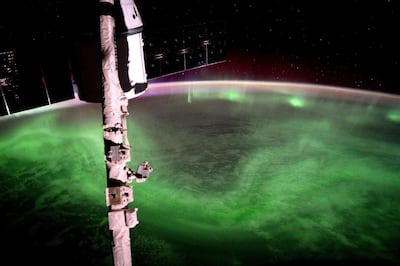Lettuce seeds that received intense radiation in Space are still edible, research has found, raising hopes that food fit for human consumption could one day be grown on Mars.
Around 2kg of rocket salad seeds were taken to the International Space Station for six months and returned in 2016.
Onboard they absorbed up to 100 times the radiation they would on earth and received “intense” vibrations from the strains of space travel.
On return they were planted across the UK and monitored in comparison to seeds that stayed on Earth.
While the space seeds did grow more slowly and were sensitive to ageing, they “were still viable” according to the UK government. Experts say that the research is evidence that, by taking sensible precautions, it should be possible to grow lettuce that is edible for humans in Space or on another planet such as Mars.
The seeds were sent up with British astronaut Tim Peake.
“When humans travel to Mars, they will need to find ways to feed themselves, and this research helps us understand some of the biology of seed storage and germination which will be vital for future space missions,” said Mr Peake, who went to Space with the European Space Agency.
The study was led by Professor Gerhard Leubner and Dr Jake Chandler from the biological sciences department at Royal Holloway University
“Transporting high quality seeds to space and beyond will be crucial for growing plants that support human exploration of space, Mars and other worlds,” Dr Chandler said.
Dr Chander said the research showed spaceflight accelerated the ageing process in the seeds.
“Thus, while we should carefully consider protecting seeds from potentially harmful factors including space radiation and mechanical vibration, the seeds remained alive, and the prospect of eating home-grown salad on Mars may be one small step closer,” he added.
The UK’s Royal Horticultural Society asked 600,000 children to help plant and monitor the seeds.



